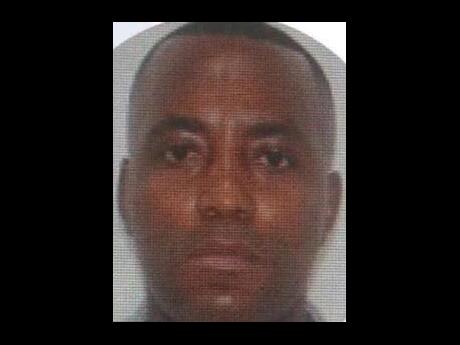Gov’t seeks legal advice on fate of Colombian wanted for killing of Haitian president
The Jamaican Government is weighing “legal consideration” regarding the fate of an ex-Colombian army officer described as a key suspect in the assassination of Haitian President Jovenel Moise, the Foreign Ministry has confirmed.
This disclosure comes amid what appears to be a diplomatic tug of war between Colombia and Haiti over who should get custody of Mario Antonio Palacios Palacios, the suspected mercenary implicated in the July 7 killing.
Palacios Palacios has been in the custody of the Jamaican police since October 11 when he was apprehended in a central parish.
Jamaica’s Foreign Ministry, in its first public comments on the issue, confirmed that it has received “documentation” from authorities in Colombia and Haiti.
The contents of the documents were not disclosed.
Haiti’s Foreign Minister Claude Joseph has, however, confirmed that his government requested that Palacios Palacios be “transferred” to Haitian authorities who are leading the investigation into Moise’s killing.
He acknowledged that in the absence of an extradition treaty between the two countries, there was no legal basis for the request.
“So, that was the word we used, transfer, which is an international cooperation,” Joseph explained during an interview with The Sunday Gleaner.
The Colombian Embassy in Kingston has not responded to questions submitted on November 11.
The Jamaican Foreign Ministry said “documentation” submitted by both countries have been forwarded to the relevant ministries, departments and agencies of government for “legal consideration”.
‘MUST BE TREATed CONFIDENTIALLY’
“In that context, it must be treated confidentially,” said Delona Flemming, director of public relations and media affairs, in a November 13 response to questions submitted by The Sunday Gleaner.
The Haitian foreign minister was not surprised by Jamaica’s position.
“I’m waiting and I’ll continue talking to my counterpart in Jamaica to show them why it was important to send Palacios to Haiti to face justice,” he said.
“I am confident that the authorities in Jamaica will transfer Palacios here,” Joseph added, explaining that his confidence was based on offers of assistance that came from CARICOM member states in the days after Moise’s assassination.
Palacios remained in local custody at an undisclosed location up to yesterday, more than a month since he was fined $8,000 or five days in prison by a Parish Court judge who also ordered his deportation for illegally entering the island.
Days after the October 15 court order, what was expected to be a routine deportation was quickly aborted after the high-value target in one of the most notorious modern murders in the hemisphere was flagged by the International Criminal Police Organization (Interpol), sources told The Gleaner at the time.
Moise was shot and beaten to death inside his private residence by 28 mercenaries – 26 of them Colombians – around midnight on July 7, Joseph charged.
He declined to discuss Palacios Palacios’ alleged role in the attack.
Forty-four suspects, including three Haitian-Americans who resided in South Florida in the United States, and members of the former president’s security detail have already been taken into custody.
NO VIOLATION
Colombian suspects who are among those in custody have accused the Haitian police of using force and pressure to get them to confess their roles, according to a report by the Miami Herald.
The accusations, the newspaper said, caused the Colombian Government to write to officials in Haiti expressing concerns about the treatment of its citizens and respect for human rights.
Concern for the safety of detainees escalated even further after officials confirmed that one suspect, former police commissioner Gilbert Dragon, died from complications caused by COVID-19.
Joseph said as far as he is aware, there have been no human rights violations against any of the suspects.
“The Colombians, thus far, are treated well. We have not heard any complaints about how they are treated in prison, so that should not be a concern,” he said, urging Colombian authorities to understand the need to cooperate with the investigation into the assassination of the country’s head of state.

